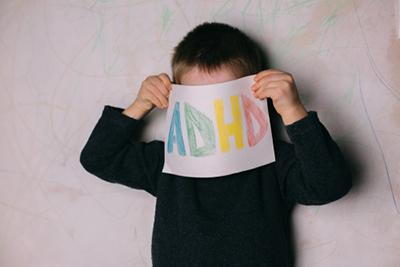ADHD Medications: Understanding Options

- posted: Dec. 28, 2023
Is your child living with ADHD? Dr. Haravu Lokesh, Dr. Rupal Desai, and Dr. Monica Porcelli at A to Z Pediatrics in New Port Richey, FL offer personalized care to help your child manage their symptoms effectively.
Understanding ADHD Medication Options
ADHD can present challenges for children, but there are various types of medication to help. Unfortunately, navigating these options and choosing the best one can be difficult and require some trial and error. In this guide, Dr. Lokesh, Dr. Desai, and Dr. Porcelli at A to Z Pediatrics in New Port Richey, FL share the basics of these medication options to help parents gain more clarity.
ADHD Medications
Medication to treat attention deficit hyperactivity disorder comes down to two basic categories: stimulants and non-stimulants. Below, we’ll break down both.
Stimulants
Stimulant medications are often the first and most effective type. ADHD is the result of a deficiency in neurotransmitters, which are the chemicals responsible for communication between nerve cells. Stimulant medications are used to increase the production of these neurotransmitters.
Stimulants are typically provided in the form of amphetamine and methylphenidate. And both are available in both immediate-release and extended-release forms.
Immediate-release stimulants are typically taken several times a day and are often the cheaper options. Extended-release stimulants are taken once in the morning and are made up of capsules that open throughout the day. Examples of stimulant medications include Adderall and Ritalin.
While these medications are often the most effective, at times they can have an adverse effect, leading to an increase in activity. They can also cause sleep issues, decreased appetite, social withdrawal, and more. When any of these occur, non-stimulant medications are typically recommended.
Non-Stimulants
Non-stimulant medications work differently. They aim to increase the concentration of both dopamine and norepinephrine in the brain’s prefrontal cortex. These are thought to help regulate behavior. Some common non-stimulants are atomoxetine and viloxazine.
Finding the Best Medication for Your Child
When your child is diagnosed with ADHD, they will likely first be prescribed a stimulant medication. The exact one will depend on several factors. Their symptoms will be monitored over time to determine if the medication is providing the desired results. If not, adjustments to dosage or a change in the medication might occur. Keep in mind that it can take some time to find the right medication and dosage.
Dr. Lokesh, Dr. Desai, Dr. Porcelli, and the team at A to Z Pediatrics in New Port Richey, FL are committed to helping you and your child navigate ADHD symptoms effectively. Call (727) 375-5242 to schedule an appointment today.

- posted: Dec. 28, 2023
Is your child living with ADHD? Dr. Haravu Lokesh, Dr. Rupal Desai, and Dr. Monica Porcelli at A to Z Pediatrics in New Port Richey, FL offer personalized care to help your child manage their symptoms effectively.
Understanding ADHD Medication Options
ADHD can present challenges for children, but there are various types of medication to help. Unfortunately, navigating these options and choosing the best one can be difficult and require some trial and error. In this guide, Dr. Lokesh, Dr. Desai, and Dr. Porcelli at A to Z Pediatrics in New Port Richey, FL share the basics of these medication options to help parents gain more clarity.
ADHD Medications
Medication to treat attention deficit hyperactivity disorder comes down to two basic categories: stimulants and non-stimulants. Below, we’ll break down both.
Stimulants
Stimulant medications are often the first and most effective type. ADHD is the result of a deficiency in neurotransmitters, which are the chemicals responsible for communication between nerve cells. Stimulant medications are used to increase the production of these neurotransmitters.
Stimulants are typically provided in the form of amphetamine and methylphenidate. And both are available in both immediate-release and extended-release forms.
Immediate-release stimulants are typically taken several times a day and are often the cheaper options. Extended-release stimulants are taken once in the morning and are made up of capsules that open throughout the day. Examples of stimulant medications include Adderall and Ritalin.
While these medications are often the most effective, at times they can have an adverse effect, leading to an increase in activity. They can also cause sleep issues, decreased appetite, social withdrawal, and more. When any of these occur, non-stimulant medications are typically recommended.
Non-Stimulants
Non-stimulant medications work differently. They aim to increase the concentration of both dopamine and norepinephrine in the brain’s prefrontal cortex. These are thought to help regulate behavior. Some common non-stimulants are atomoxetine and viloxazine.
Finding the Best Medication for Your Child
When your child is diagnosed with ADHD, they will likely first be prescribed a stimulant medication. The exact one will depend on several factors. Their symptoms will be monitored over time to determine if the medication is providing the desired results. If not, adjustments to dosage or a change in the medication might occur. Keep in mind that it can take some time to find the right medication and dosage.
Dr. Lokesh, Dr. Desai, Dr. Porcelli, and the team at A to Z Pediatrics in New Port Richey, FL are committed to helping you and your child navigate ADHD symptoms effectively. Call (727) 375-5242 to schedule an appointment today.
4804 Rowan Rd, New Port Richey, FL 34653
4804 Rowan Rd,
New Port Richey, FL 34653
Monday
8:00 am - 5:00 pm
Tuesday
8:00 am - 5:00 pm
Wednesday
8:00 am - 5:00 pm
Thursday
8:00 am - 5:00 pm
Friday
8:00 am - 5:00 pm
Saturday
Closed until further notice
Sunday
Closed
